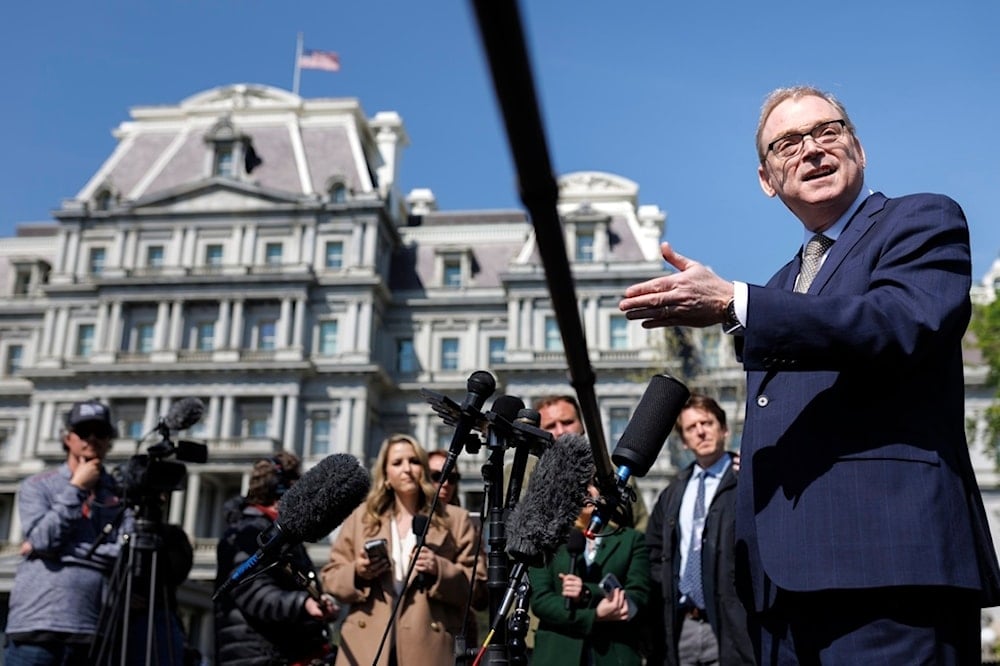White House weighs Fed Chair dismissal, says Trump economic advisor
US President Trump continues to pressure the Fed for rate cuts and accuses Fed Chair Powell of being too slow.
-

White House economic adviser Kevin Hassett speaks to reporters at the White House, Friday, April 18, 2025, in Washington. (AP Photo/Tom Brenner)
The Trump administration is actively weighing the possibility of removing Federal Reserve Chairman Jerome Powell, amid growing conflict over US economic policy and concerns about the impact of tariffs on inflation.
Speaking to reporters Friday, White House economic adviser Kevin Hassett confirmed the administration is evaluating its options. "The president and his team will continue to study that matter," he said when asked directly whether Powell's dismissal was on the table.
The move follows President Donald Trump's increasingly public criticism of Powell, whom he nominated during his first term. On Thursday, Trump issued a blunt warning: "I'm not happy with him. I let him know it, and if I want him out, he'll be out of there real fast, believe me." In a separate post on Truth Social, the president added, "Termination… cannot come fast enough."
Reports from The Wall Street Journal suggest that Trump has been considering this step for months, even discussing it privately with former Fed Governor Kevin Warsh at Mar-a-Lago. Although Trump cannot directly fire the Fed chair, legal experts note he could try to remove Powell by showing "cause"—a process that would likely face significant institutional and legal resistance.
Fed Showdown
The friction intensified after Powell warned at the Economic Club of Chicago that Trump's sweeping tariff regime could undermine the central bank's ability to balance its dual mandate of controlling inflation and supporting employment. "Tariffs are highly likely to generate at least a temporary rise in inflation," Powell said. "Policymakers could find themselves in the challenging scenario in which our dual-mandate goals are in tension."
Concerns over Trump's trade policy have also been echoed by other Fed officials. Boston Fed President Susan Collins warned that inflation could rise "well above" 3%, while New York Fed President John Williams projected economic growth falling below 1% and unemployment climbing to 5%.
Read more: Fed officials voice fears of inflation, slower growth from tariffs
Despite these warnings, Trump continues to pressure the Fed for rate cuts and accuses Powell of being too slow, pointing to the recent eurozone rate cut led by European Central Bank President Christine Lagarde. "Too Late," Trump wrote, contrasting Powell's caution with Lagarde's swift action. Lagarde, however, publicly backed her US counterpart, saying, "I have a lot of respect for my friend and esteemed colleague."
Democrats have condemned Trump's threats, warning that political interference in the Federal Reserve could destabilize financial markets. Senate Majority Leader Chuck Schumer said on X, "An independent Fed is vital for a healthy economy — something that Trump has proved is not a priority for him."
While no formal removal process has begun, the administration's openness to the idea underscores the extent of the rift and raises alarms about the future independence of the US central bank.

 3 Min Read
3 Min Read










